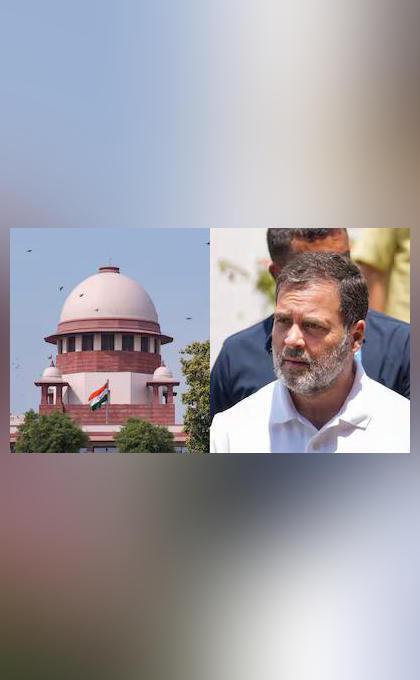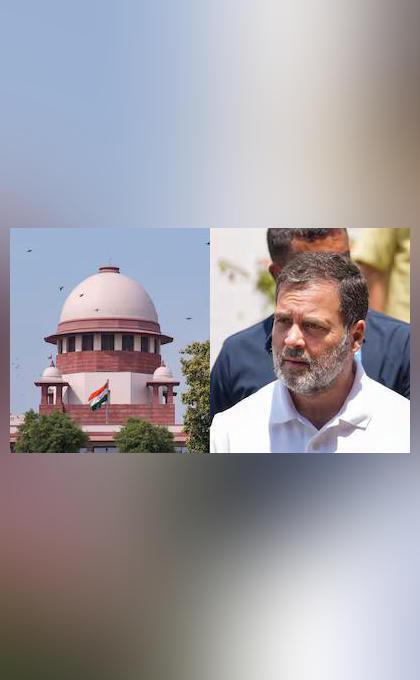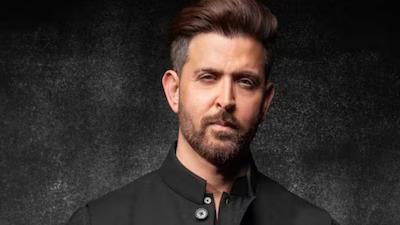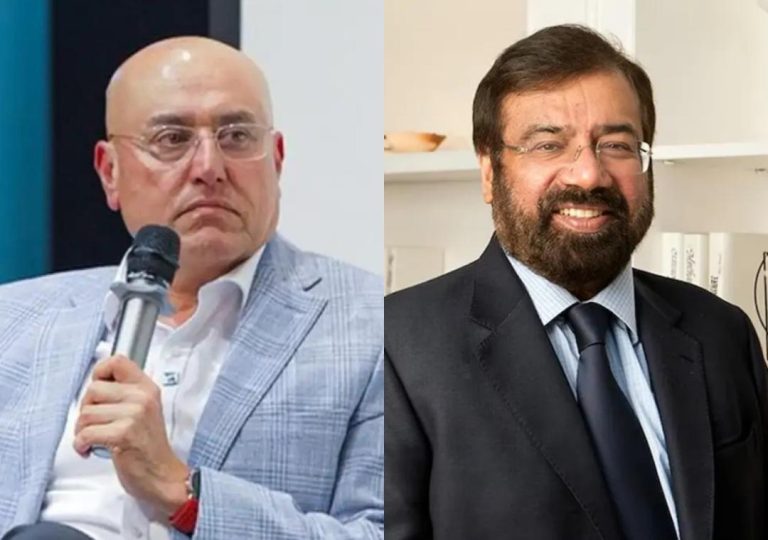
Why Ask on Social Media & Not in Parliament: SC to Rahul on ‘Land Grab’ Claim
In a recent development, the Supreme Court has rebuked Congress leader Rahul Gandhi over his claim that China had grabbed 2,000 square kilometers of Indian land. The court’s stern rebuke came while staying a defamation case against Rahul for his remarks about the Indian Army. The next hearing in the case is scheduled to take place after three weeks.
Rahul Gandhi had made the claim in 2020, sparking widespread outrage and controversy. The Congress leader had alleged that China had occupied 2,000 square kilometers of Indian land in Ladakh. However, the Indian government had denied the claim, stating that there was no evidence to support it.
The Supreme Court’s rebuke of Rahul Gandhi came in response to his argument that he was entitled to make the claim because he was a Member of Parliament. However, the court was not convinced and asked Rahul to explain how he knew that 2,000 square kilometers of Indian land had been occupied by China.
The court’s observations have raised important questions about the role of social media in politics and the importance of using credible sources to make claims. In an era where misinformation and disinformation can spread rapidly online, it is crucial that public figures like Rahul Gandhi exercise caution and resist the temptation to make unsubstantiated claims.
Moreover, the Supreme Court’s rebuke of Rahul Gandhi has also highlighted the need for parliamentary representatives to engage more effectively with the legislative process. Instead of making unsubstantiated claims on social media, parliamentarians should use their platform to ask informed questions and seek clarification on important issues.
The Supreme Court’s observations are particularly relevant in the context of India’s ongoing border dispute with China. The dispute has been ongoing for several years and has led to several rounds of talks between the two countries. However, despite the progress that has been made, the issue remains contentious and sensitive.
In this context, it is crucial that public figures like Rahul Gandhi exercise caution and avoid making unsubstantiated claims that can fuel tensions and create confusion. Instead, they should work towards promoting a constructive dialogue and seeking resolution through diplomatic channels.
The Supreme Court’s rebuke of Rahul Gandhi has also raised questions about the accountability of public figures in India. In a democracy, public figures have a responsibility to act with integrity and transparency, and to respect the institutions of democracy.
However, in recent years, there have been several instances where public figures have made unsubstantiated claims or engaged in damaging rhetoric. This has undermined the credibility of institutions and created confusion among the public.
The Supreme Court’s rebuke of Rahul Gandhi is a welcome development in this context. It sets an important precedent for public figures to be held accountable for their actions and to respect the institutions of democracy.
In conclusion, the Supreme Court’s rebuke of Rahul Gandhi over his claim that China had grabbed 2,000 square kilometers of Indian land is a significant development. The court’s observations have raised important questions about the role of social media in politics, the importance of using credible sources to make claims, and the accountability of public figures in India.
As we move forward, it is crucial that public figures like Rahul Gandhi exercise caution and resist the temptation to make unsubstantiated claims. Instead, they should work towards promoting a constructive dialogue and seeking resolution through diplomatic channels. The Supreme Court’s rebuke is a reminder of the importance of respecting the institutions of democracy and acting with integrity and transparency.




